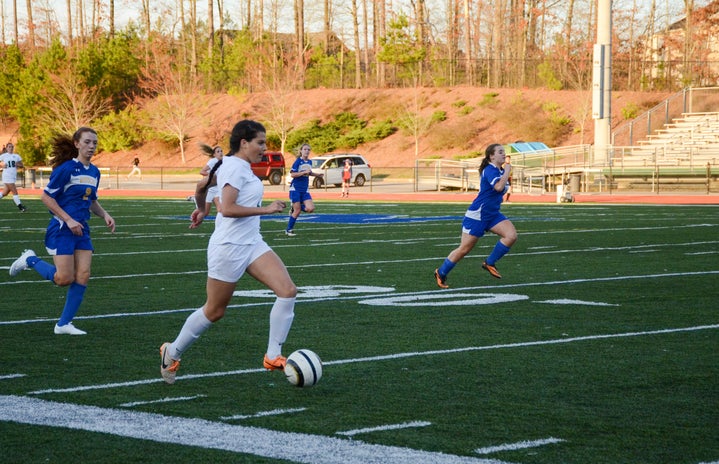Is it game over for gendered discrimination in football?
Since the complete banning in 1921 of female participation in the game, that lasted for a shocking 51 years, the recent representation of women’s football in the media has encouraged developments in working towards an equal future.
The England women’s national football team known as the Lionesses took the football world by storm, beating Austria in front of a crowd of 68,871, a record for the UEFA Women’s Euro. As viewership indicates largely the popularity of a sport, the future for sporting females appears bright.
Considering the recent positive achievements for women in football, it would be easy to believe that this support is reflected for female athletes around the globe. However, discrimination and misogyny remain a powerful weapon in encouraging fear and hatred towards women just for participating in sport.
Much of this hatred stems from the fear of inferiority – that sometimes women may be better at something than men. This is evident especially when looking at UoN’s own sporting accounts. @uonwfcouttakes comments sections reveal how participating in fun challenges invites an attack of misogyny. After their ‘two touch challenge’ video was posted, the comment section became flooded with hostile, sexist and frankly disgusting comments. Remarks such as ‘Maybe post some good clips? All these clips are dead’, or ‘wE cAn PlaY FoOtBaLl ToO’, belittle women’s football, attempt to reduce its value as a sport, and suggest that women need male approval to be considered worthy. Thus, they bear a chilling resemblance to the dated and sexist comments of the FA Council who banned women’s football all those years ago, when they stated that ‘football is quite unsuitable for females and should not be encouraged’. It is a great pity that despite the developments towards a more equal future, these dated, misogynist ideologies are still circulating mainstream media. Many of the comments objectify the women by placing focus on whether they find them attractive or not, completely ignoring the idea of women being capable of anything other than pleasuring men.
United Nations Women declare that ‘women in sport defy gender stereotypes and social norms, make inspiring role models, and show men and women as equals.’ This beneficial value of female representation in sport is diminished by male fears of feeling inferior to a gender they have controlled since history can remember. Those who encourage this prejudice against women in sport need to stick to goal-keeping, not gatekeeping.


